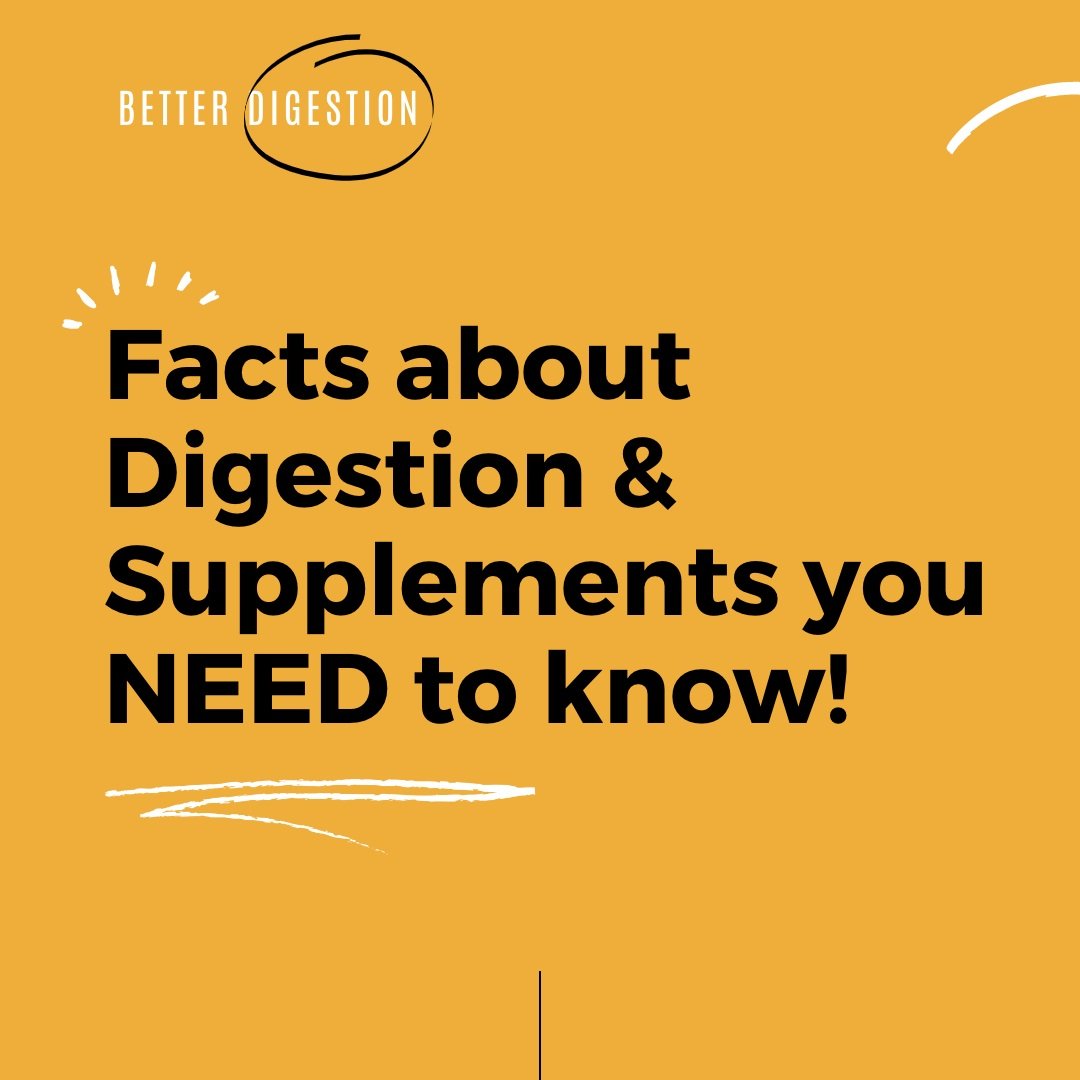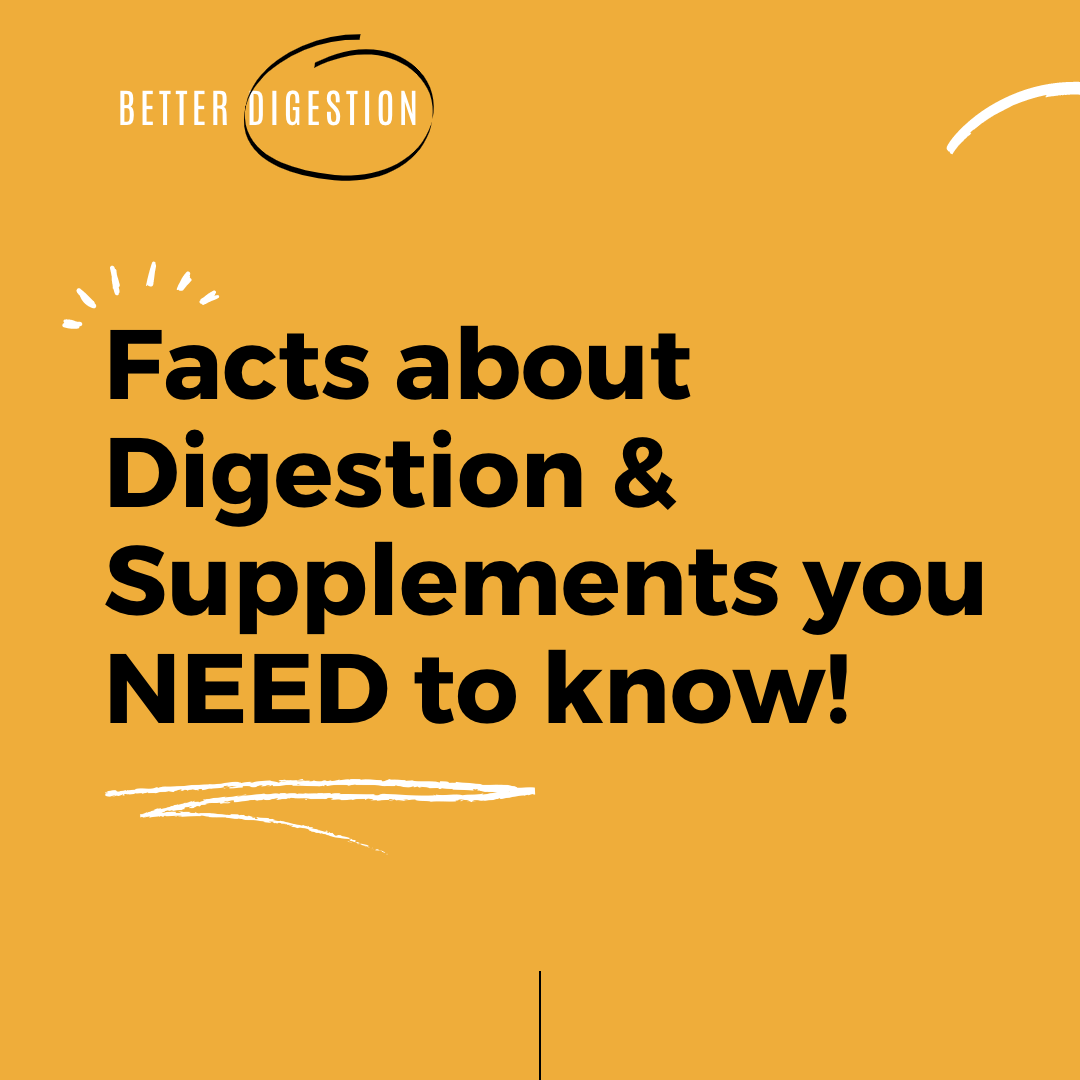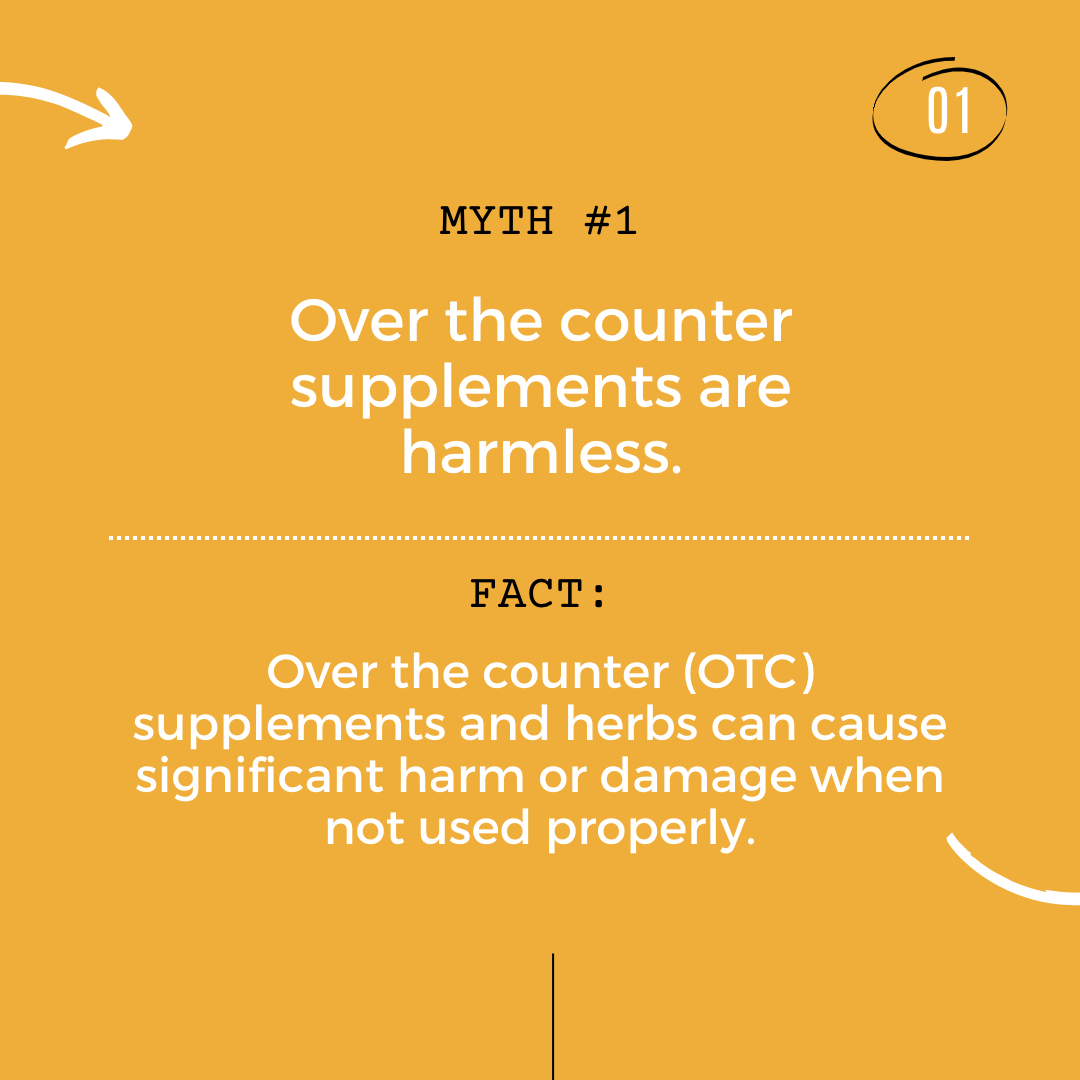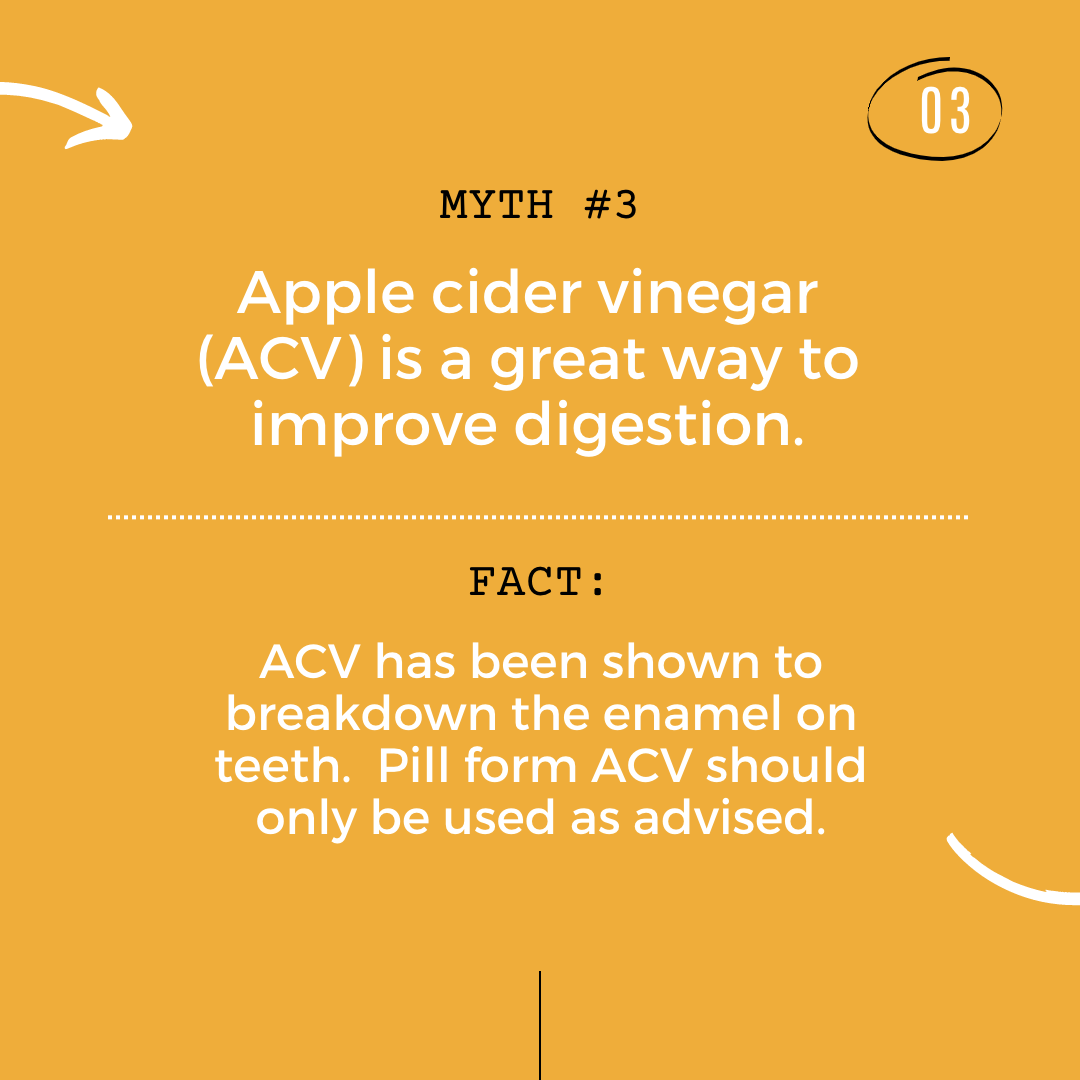One of the biggest mistakes with regards to digestion is trying to supplement-out a bad diet. This is known for exercise, too. Have you been there? You see something absolutely divine looking – and it tastes even better! But then about 30 minutes later, the …
One of the biggest mistakes with regards to digestion is trying to supplement-out a bad diet. This is known for exercise, too.
Have you been there? You see something absolutely divine looking – and it tastes even better!
But then about 30 minutes later, the regret starts to set in.
All of those strategies you’ve been working on to eat healthier went straight out the window with just a few bites.
So what do you do instead?
Do you go to the cupboard and look for something to rectify or erase some of the consequences from that treat(s)? If you’ve educated yourself in supplements over the years or fallen into the many traps of “take this miracle pill” propaganda, you may even have something ready for such an occasion.
Here’s the problem: adding more ‘stuff’ to an already botched feeding session isn’t always the best option.
Spoiler alert: moving on with your day without taking a supplement is often the best option.
Yes, there are exceptions to this rule. There aren’t any hard-fast rules to anything in life anyways, right?
Ready?
Let’s bust a few supplement myths with regards to digestion, shall we?
Myth #1 – Over the counter supplements are harmless.
Over-the-counter (OTC) supplements like herbs, vitamins, and adaptogens are less potent than prescription medications, but they do not come without risk. It’s easy to duplicate an ingredient unknowingly, have opposing effects from other supplements or prescription medications, and have changing effects of how your body absorbs other medications/supplements.
How often do you read the ‘adverse reactions’ label before popping your favorite supplement or pill? Probably close to never.
It’s ok. We are all in a hurry.
Know this: You can overdose and cause organ damage with supplements, herbs, and OTC medications. It’s not just the prescription medications that have warning labels, adverse effects, and threats of permanent damage.
OTC options have threats to your health, too.
The key is knowing what, when, how much, and how long.
If you don’t know these answers with certainty, you shouldn’t be taking it.
Research and dig deep before you take anything – OTC or prescription. Know that prescription warnings have a context that’s not always included. Use tools like Epocrates, Drug-Nutrient Interaction Tracker (by Integrative Therapeutics) or Pill Identifier (by Drugs.com).
Solution: Read labels and know what you’re taking and why you’re taking it. Use those tools I linked above and be an advocate for yourself.
Myth #2 – Protein powders are fine to use daily. They are a great way to get protein in.
UGH! I feel like a skipping record on the verge of being completely shattered with this one. Protein powders used on a daily basis in the presence of a healthy diet are neither appropriate nor helpful. Anytime you skip steps in digestion there is a very high potential to cause problems later.
Digestion starts in our brain. When we think about what we are going to eat (the cephalic phase), the parasympathetic nervous system (PNS) should be in control. Operative word is “should”. The PNS is the ‘rest and digest’ part that initiates a cascade of events in digestion. Skipping any steps alters that process. Given the complexity of those possibilities, if you have specific questions about your specific needs, schedule a call HERE
Let me ask you this:
What is the main reason you are using protein shakes?
Most likely because you’re in a hurry. Chugging a shake will cause problems. Sipping doesn’t really change the fact that substituting whole nutrient-dense foods for processed, powdered and fortified replacements may fill your stomach, but are not optimal for health.
Don’t believe the hype on the label or advertisement. Protein and meal replacement shakes are not the same thing as nutrient-dense whole foods.
How’s your skin? Your mood? Your energy levels? Your bowel movements? Do you have frequent headaches, nausea, and/or upset stomach?
If you answered “uhh, not so great” or “yep, that’s me” to any of these and are using protein or meal replacement shakes daily, remove them for a period of time (30-60 days) and eat whole foods. See how you feel.
Solution: Consume the majority of your protein from animal sources. Use high quality protein powders infrequently and only as needed. By the way, you don’t need protein powders as often as you think. Plus, whole food sources of protein are much less expensive than powders.
Need more help? Ask me questions HERE
If you feel swapping out your protein shakes for whole foods is not an option right now, choose brands like Equip or Paleo Pro. When choosing a protein powder, look for one that is made from animal protein and has as few ingredients as possible.
That being said, try a quality beef jerky first. It’s just as quick and has more nutrients already packed in.
Myth #3 – Apple cider vinegar is a great way to improve digestion.
Apple Cider Vinegar (ACV) is made when apples are combined with yeast, which turns it into alcohol. Then bacteria is added to the fermented solution which turns it into acetic acid. When used appropriately and for a short duration, ACV can improve digestion by increasing stomach acid temporarily. The biggest misconception about ACV I’ve come across is that it’s harmless in any dose or method of ingestion.
ACV has been touted to increase fat loss, promote healthy blood sugar levels, increase insulin sensitivity, and improve cholesterol levels. These benefits are more anecdotal than proven with scientific evidence. More research needs to be done to assess if these claims are indeed accurate.
What’s not mentioned often is the inappropriate use of ACV can lead to a few health concerns.
-
Delayed gastric emptying or worsening of symptoms of gastroparesis. This occurs when food doesn’t leave the stomach within the normal timeframe which is due to the nerve connections to the stomach. Gastroparesis is common in diagnoses like Diabetes and Dysautonomia. When food isn’t moved on to the next stages in digestion in a timely manner, indigestion, heartburn, nausea and bloating may occur.
-
Poor nutrient absorption. This may occur if delayed gastric emptying occurs.
-
Low potassium and bone loss. This along with other nutrient deficiencies is plausible, but is more closely tied with copious amounts of ACV.
-
Erosion of tooth enamel. Acetic acid found in vinegar is widely known to damage tooth enamel. This is why ACV in capsules has become popular.
-
Burn potential. Throat burns from ACV have been reported with liquid and in pill form (if it gets stuck in the esophagus). Once again, this is often a case of too much or too strong of a dosage. ACV is used to ‘burn off’ warts and mole, and reduce dark spots slowly over time. These are also anecdotal reports, but I find with anecdotes does come some truth.
Solution: If you’re using ACV to increase stomach acid, use it sparingly, in as small of a dose as possible, as needed, and get some guidance for other strategies to improve your stomach acid. If you’ve already stocked up on ACV in liquid form, it’s great to use for the occasional salad dressing, to cook with, or even added to a foot soak.
Myth #4 – Vitamin C packets/powders are safe to take daily
Vitamin C is a vital nutrient our body needs for healthy blood vessels, cartilage, muscles and collagen in bones. It’s a powerful antioxidant that reduces the damaging effects of free radicals from food, the environment and stress. That damage can lead to cancer, DNA damage, and heart disease, to name just a few. Vitamin C also increases the absorption and storage of iron.
Your body doesn’t produce Vitamin C. You must get it from your diet. I think we all know citrus is one of the best sources. Liver is also a great source.
During flu and cold season, advertisements and social recommendations for taking 1,000 mg or more of vitamin C are common. We’ve been told for decades it keeps our immune system strong.
But did you know, it’s not the vitamin C in isolation (supplement form) that has been shown to reduce the risk of cancer, reduce the severity of colds, or even prevent cataracts and age-related macular degeneration? Nope! The relationship between diet and Vitamin C benefits are from a nutrient-dense whole-food diet, not Vitamin C alone.
Excess Vitamin C can cause diarrhea, nausea, and alter the effects of certain prescription medications (including anti-coagulants, statins, anti-viral drugs, estrogen, and chemotherapy drugs). Just like any other supplement, more is not always better.
Solution: Only take what you need. Currently, the RDA for Vitamin C is 90 mg for men and 75 mg for women. Not very personalized because of personal metrics when you think about it.
Take this information and really think about how you’re using supplements. I use to think the ultimate goal was zero supplements. I still aim for that with myself and the people I help. I use to think that it was possible to eat ONLY food and get everything we need. Unfortunately, for the mass population this is not feasible because of the poor quality of the soil from mono-crops and
Overall Solution: Avoid the supplement aisle, store or online claims unless you know you need something. It could be causing more harm than good.
References
7 Side Effects of Too Much Apple Cider Vinegar
Drug-Nutrient Interaction Tracker
OTC Medicines: Know Your Risks and Reduce Them






Comments